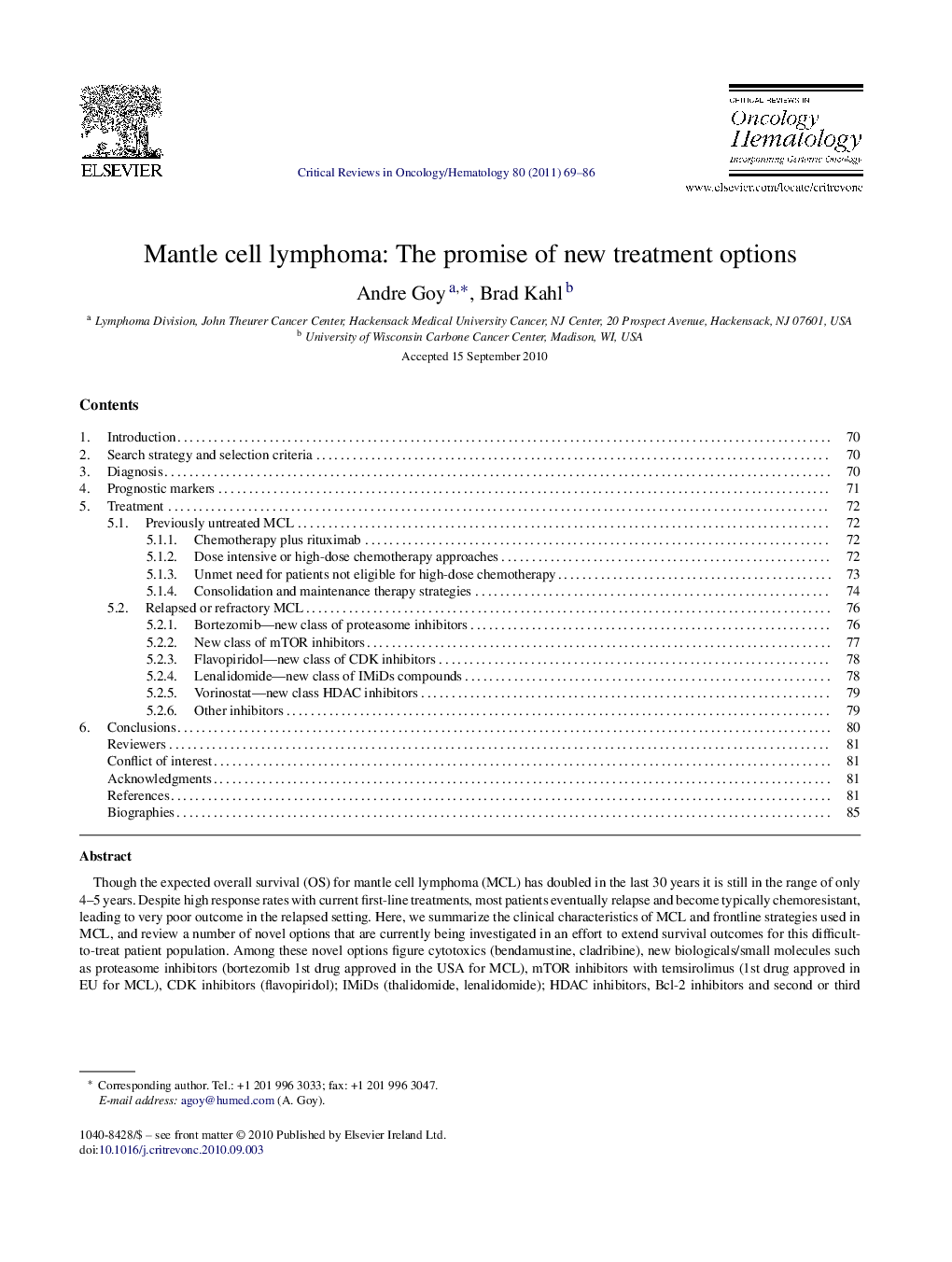| Article ID | Journal | Published Year | Pages | File Type |
|---|---|---|---|---|
| 3329211 | Critical Reviews in Oncology/Hematology | 2011 | 18 Pages |
Though the expected overall survival (OS) for mantle cell lymphoma (MCL) has doubled in the last 30 years it is still in the range of only 4–5 years. Despite high response rates with current first-line treatments, most patients eventually relapse and become typically chemoresistant, leading to very poor outcome in the relapsed setting. Here, we summarize the clinical characteristics of MCL and frontline strategies used in MCL, and review a number of novel options that are currently being investigated in an effort to extend survival outcomes for this difficult-to-treat patient population. Among these novel options figure cytotoxics (bendamustine, cladribine), new biologicals/small molecules such as proteasome inhibitors (bortezomib 1st drug approved in the USA for MCL), mTOR inhibitors with temsirolimus (1st drug approved in EU for MCL), CDK inhibitors (flavopiridol); IMiDs (thalidomide, lenalidomide); HDAC inhibitors, Bcl-2 inhibitors and second or third generation monoclonal antibodies or immunotoxins. The panel of novel drugs approved or being tested offers new opportunities in the management of MCL from combination in the frontline setting (e.g. bortezomib-R-chemo) to post-induction strategies such as consolidation (e.g. radioimmunotherapy, bortezomib) or maintenance therapy (e.g. rituximab, lenalidomide).
